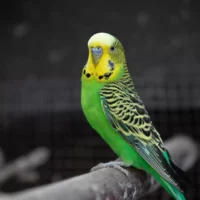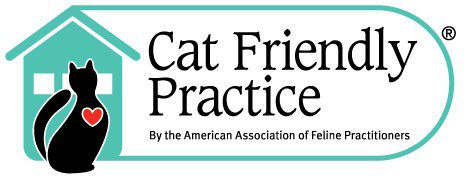January is Adopt A Rescued Bird Month! Birds can be incredibly enjoyable and charming pets. Polly packs a huge personality into her small form. While bird ownership isn’t necessarily right for everyone, our feathered companions have certainly gathered a huge flock of devoted fans. We love seeing birds getting loving homes! However, it’s important to do lots of research and make informed decisions before adopting a pet. This is particularly true in the case of birds. Our winged friends have specific care needs, which might pose a challenge for first-time bird owners. This article provides guidance from a local St. Cloud, MN vet on adopting rescued birds.
Why Should I Adopt A Rescued Bird?
There are many reasons to consider giving a sweet bird a loving forever home. Polly is really fun and cute. Your pet may sing, dance, and play with you. By adopting, you may also save a bit of money. You may also be able to find the perfect match. Plus, it just feels wonderful to give a cute pet a second chance.
How Do You Bond With A Rescued Bird?
Love and time are the only true answers. However, some birds will settle in more easily than others. The reason your bird was rehomed may come into play here. In some cases, this is because they are, well, a bit loud. In other cases, it’s due to behavioral issues, which often stem from improper care. A lack of understanding is a big part of the problem here. Many people adopt birds without realizing how much care and attention they need. A bird that is extremely difficult may be a bit much for a new bird owner.
Birds can get very attached to their humans. Changing owners can be very traumatic for them. In fact, some parrots are rehomed as many as seven times over the course of their lives. This is something to be very aware of with rescues. Polly may be sad and depressed at being separated from her former owner, and may need time to get over her sorrow.
Here are a few tips for helping win your winged pal’s heart:
Talk To Polly: Your pet may not understand what you’re saying, but she will pick up on the tone of your voice. Use a quiet, gentle, and friendly tone.
Help Her Feel Safe: Spend time near your winged buddy’s cage, but don’t force attention on her. You may want to put a comfy chair near the birdcage. That way, you can just hang out there when you want to read, scroll on your phone, or watch TV. This will help your new buddy get used to you.
Be Super Gentle: You may want to pet or cuddle your new bird, but it’s important to let her feel safe before handling her. Don’t try to grab her, and definitely don’t stick your hands into the cage. Always move very slowly around your new pal.
Offer Treats: Snacks can be very beneficial for bonding and building trust. Offer various bird-safe fruits and veggies, millet spray, treat sticks, or raw pasta. It may take time to figure out what Polly likes best, so try different things. Just be sure to stick with safe options. Ask your St. Cloud, MN veterinarian for specific advice on this.
Our winged friends get very, very attached to their owners, but that bond doesn’t form overnight. Polly will need time to learn to trust you. Be patient, and don’t force things. Love takes time!
How Do I Choose My Rescue Bird?
Birds all have their own characters. Polly’s breed will factor heavily into her personality and care needs. Some birds do just fine in apartments, while others need lots of room. Some are very quiet, while others are extremely loud.
If you’re a beginner, and you want a rescued bird, you may want to choose a breed that is an easy keeper. Do some breed-specific research, and ask your St. Cloud, MN vet for information.
Here are a few factors to consider:
- Space Requirements
- Size
- Life Expectancy
- Companionship Requirements
- Volume
- Speech Capacity
- Trainability
- Friendliness
What Kind Of Rescue Bird Should I Get?
This one also will come down to research. Some birds are better suited to beginners than others.
Here are a few of our top choices:
Budgie/Parakeet: Small, playful, and absolutely adorable, these little birds are wonderful pets. They’re suitable for children, but don’t need as much room as some of our larger pals.
Finches: Finches are quite small and delicate, and do best in small flocks. They bond more to each other than to their humans, which makes them a good pet for someone who wants a low-maintenance bird.
Lovebirds: Colorful and cuddly, these small parrots are very cute and loveable. As the name suggests, they need buddies, as they are very social and do not do well alone.
African Grey Parrot: If you’re looking for a pet that will both keep you laughing and keep you on your toes, the African Grey may be your match. Just do plenty of research first: like many other parrots, these guys are very smart, and need lots of attention. They can get into quite a bit of mischief if they get bored.
Of course, breed is only one factor. Our animal friends all have their own personalities. Observe your potential pet. It’s important to make a connection, but it’s also important to make a good match. Find out about Polly’s history and medical background, and see how she interacts with you and with others. You’ll also want to get an overview of her health.
Getting A Great Cage For A Rescue Bird
A good cage can go a long way toward helping your feathered pal feel happy and safe. The size and type of cage birds need will vary, depending on their breed. For instance, finches need more horizontal space, as they tend to fly across their cages instead of climbing up them. Parrots, on the other wing, love to climb.
However, we always recommend opting for the largest one feasible. Before purchasing a cage, measure the spot where you want to put it. That way, you’ll know how much room you have to work with. It can be tempting to save money by buying a secondhand cage, but be careful: a cage previously used by an ill bird may not be safe.
How Do I Make My Home Safe For A Rescued Bird?
Birdproofing is a must! Many common household items are dangerous to birds. That list includes fans, window treatments, candles, mirrors, and fireplaces, and toxins, to name just a few. Small or sharp objects are also a concern, as are things like kitchen utensils, full sinks or toilets, and plastic objects. You’ll also need to make sure your feathered pal won’t be exposed to any fumes. Ask your vet for specific advice.
Research Before Adopting A Rescued Bird
We know, we already suggested research, but we just can’t overstate its importance here. Birds have wonderful qualities, but they aren’t the right pet for everyone. Polly can be a messy roommate. She also has very sensitive lungs, and isn’t a good match for a household where she’ll be exposed to cigarette smoke or a lot of chemicals or vapors. You’ll need to consider other pets as well. If you have a feline pal, bringing a bird into your home will require a lot more ‘catculation’ than if Polly were to be an only pet.
That all said, adopting a rescued bird can be very enriching and fulfilling. You may be surprised at how quickly Polly steals your heart!
Do you have questions about caring for a rescued bird? Contact us, your local St. Cloud, MN pet hospital, today!












